Sedation Dentist – Centennial, CO
Feel At-Ease While in the Dental Treatment Chair

Dental fear and anxiety are common barriers that patients face when it comes to scheduling important treatments and planning routine dental checkups and teeth cleanings to stay on top of their oral health. If you feel overwhelmed or fearful of the sights, sounds, and scents of the dental office, our team at Homestead Dental offers multiple types of sedation dentistry in Centennial to help calm your nerves and allow you to have an overall more positive dental experience.
Why Choose Homestead Dental for Sedation Dentistry?
- Friendly, Compassionate & Experienced Dental Team
- Committed to Personalized, Attentive Dental Care
- Serving the Community for Over 25 Years
Nitrous Oxide Sedation
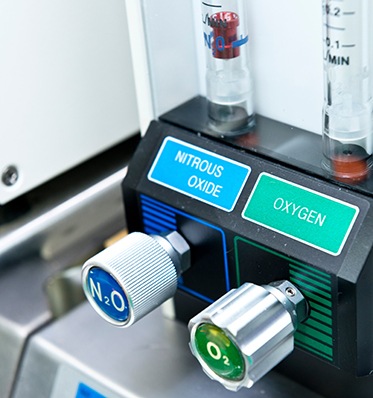
If you’re only mildly anxious about visiting the dentist, then our team may suggest nitrous oxide sedation to help soothe your nerves. Nitrous oxide is also known as “laughing gas” due to its ability to induce feelings of euphoria in patients. One of the primary benefits of this form of sedation is that it wears off quickly, meaning you will be able to return to your regular activities shortly after your appointment.
Who is a Good Candidate for Nitrous Oxide?
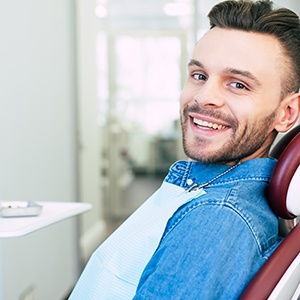
If you’re trying to figure out whether you could benefit from nitrous oxide at your next dental appointment, ask yourself the following questions:
- Are you often nervous about visiting the dentist even for routine checkups and cleanings?
- Do you often have a hard time sitting still for extended periods?
- Do you tend to gag easily?
- Have you had problems getting numb with local anesthesia in the past?
You could be a candidate for nitrous oxide sedation if you answered “yes” to any of these questions. That said, though, it should be noted that nitrous oxide is not recommended for certain people, such as pregnant women or anyone who is currently suffering from sinus congestion. Our team can help you determine whether nitrous oxide sedation is truly suitable in your case.
How Does Nitrous Oxide Work?
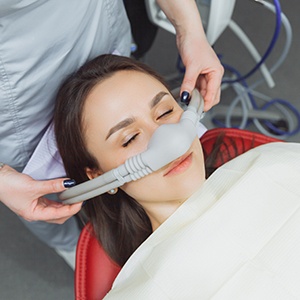
When you’re ready to begin your treatment, one of our patients will place a small mask over your nose. The mask will be hooked up to a machine that, when switched on, will release nitrous oxide mixed with oxygen. As you breathe the gas in, you will start to become more relaxed. You might also feel drowsy, but the sedative is not intended to cause you to fall asleep; you will still be awake and capable of following any instructions given by your dentist.
As we’re treating your smile, we’ll keep a close eye on you and adjust the level of sedation if need be. Once the procedure is over, we’ll take the mask off of your nose. You will be given a few minutes to rest, during which time the effects of the nitrous oxide will slowly dissipate.
Aftercare for Nitrous Oxide

The only aftercare required for nitrous oxide is to wait in our office for a short while. Our team will keep a close eye on you until we’re sure that the effects have worn off completely. Afterward, you should be able to go back to your regular activities right away, whether that means returning to work, running errands, or engaging in other activities.
Of course, you may require aftercare for your actual dental work depending on how invasive it was. Sometimes it may be necessary for you to spend a day or two resting at home. We urge you to call us immediately if any unexpected side effects occur during your recovery.
Oral Conscious Sedation

Nitrous oxide sedation often isn’t enough for patients with moderate or severe cases of dental anxiety, which is why we also offer oral conscious sedation. With this approach, you can just take a pill in order to stay relaxed while your smile is being treated. It’s worth noting that oral conscious sedation puts you in a deeper state of relaxation than nitrous oxide, but it still won’t cause you to fall asleep.
What is Oral Conscious Sedation?
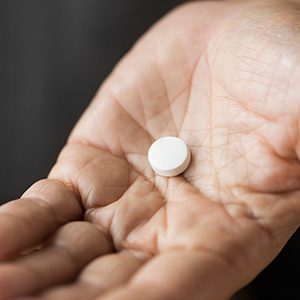
Oral conscious sedation simply involves giving you a special kind of medication prior to your appointment. The exact kind of medication can vary; Valium, Ativan, and Halcion are all commonly used.
You don’t have to wear a nasal mask for oral conscious sedation; this is one reason why some patients may prefer it to nitrous oxide. Furthermore, it allows you to achieve advanced relaxation without requiring any needles.
How Does Oral Conscious Sedation Work?
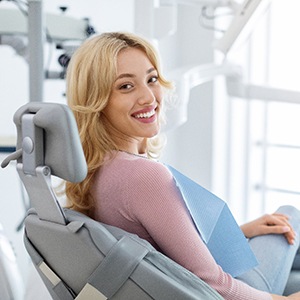
You’ll be instructed to take the medication at a specific time before your visit. You should plan on having a friend or family member drive you to our office. The effects should start to kick in by the time we’re ready to begin the procedure, leaving you at ease with everything going on around you.
You might drift off during your treatment, but our team will be able to wake you up easily if that happens. Otherwise, you will remain conscious and capable of following our directions. You will also be able to let us know about your current level of comfort. We take the safety of our patients seriously, and to that end, we will closely monitor you the entire time that you’re under the effects of oral conscious sedation.
The effects of the sedative will likely linger for a while after your appointment. Therefore, you will need to have someone else drive you home. You should also plan to spend the remainder of the day resting.
Are You a Good Candidate for Oral Conscious Sedation?
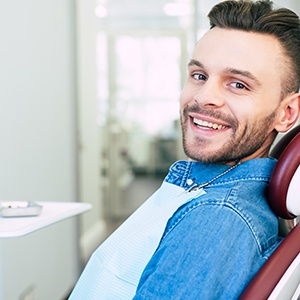
This is a question that needs to be considered carefully. Plenty of patients can potentially benefit from oral conscious sedation, but it may not be a good fit for everyone. Our team will need to consider your unique situation before we can make a recommendation.
Oral conscious sedation may be worth considering in the following situations:
- You have dental fears or anxieties that have discouraged you from seeking necessary care in the past.
- You have a gag reflex that’s stronger than normal.
- You need to have multiple treatments performed during the same appointment.
- You have trouble sitting still or holding your mouth open.
- You are resistant to the effects of local anesthetic.
Please reach out to us if you’re interested in oral conscious sedation or have any questions about how it works.
Sedation Dentistry FAQs
Is sedation dentistry safe?
Both nitrous oxide and oral conscious sedation are safe for most patients. Nitrous oxide in particular is known as a mild solution, to the point where it’s often the go-to sedation method for children.
That said, allergic reactions and certain medications can interact negatively with the sedation chemicals. You can be rest assured that our dental team will diligently review your medical history with you to ensure your safety during treatment.
What does it feel like to be sedated at the dentist?
Though nitrous oxide and oral conscious sedation have similar goals, they feel slightly different.
Nitrous oxide is often described as feeling relaxing, light, and even euphoric. You’ll be aware of your surroundings and able to respond to questions and instructions, but external stimulus will seem dulled – which is what makes it an effective sedation option.
Oral conscious produces a deeper state of relaxation. Instead of feeling light or slightly giggly, you might feel “heavy” or drowsy. Some patients even nod off during treatment! While you’ll ultimately also be conscious with oral conscious sedation, your memory of the experience is likely to be hazy.
How long does dental sedation last?
Nitrous oxide works quickly and leaves your system just as fast. Once we shut off the gas, you should be able to drive yourself home after five minutes or so.
Since oral conscious is a stronger type of sedation, you might feel its effects for the rest of the day. Patients receiving oral conscious sedation will have to secure reliable transportation to and from our office and should avoid operating heavy machinery for 24 hours after their treatment.
Am I a good candidate for sedation dentistry?
Have you been avoiding making a dental appointment? Do bright lights and loud sounds make you severely uncomfortable? Or does it hurt to sit still for prolonged periods of time? Then you would likely benefit from sedation dentistry. In a nutshell, its purpose is to help patients who find dental appointments challenging feel more comfortable. If you think that sedation dentistry could improve your in-office experience, let us know, and we’ll be happy to discuss your options.
We strongly encourage patients to be honest about their medical history during dental sedation consultations. Although nitrous oxide and oral conscious sedation are generally safe, pregnancy, certain medical conditions, and some medications can create risky complications. We want to secure both your comfort and safety and will help you find a solution that’s right for you.


